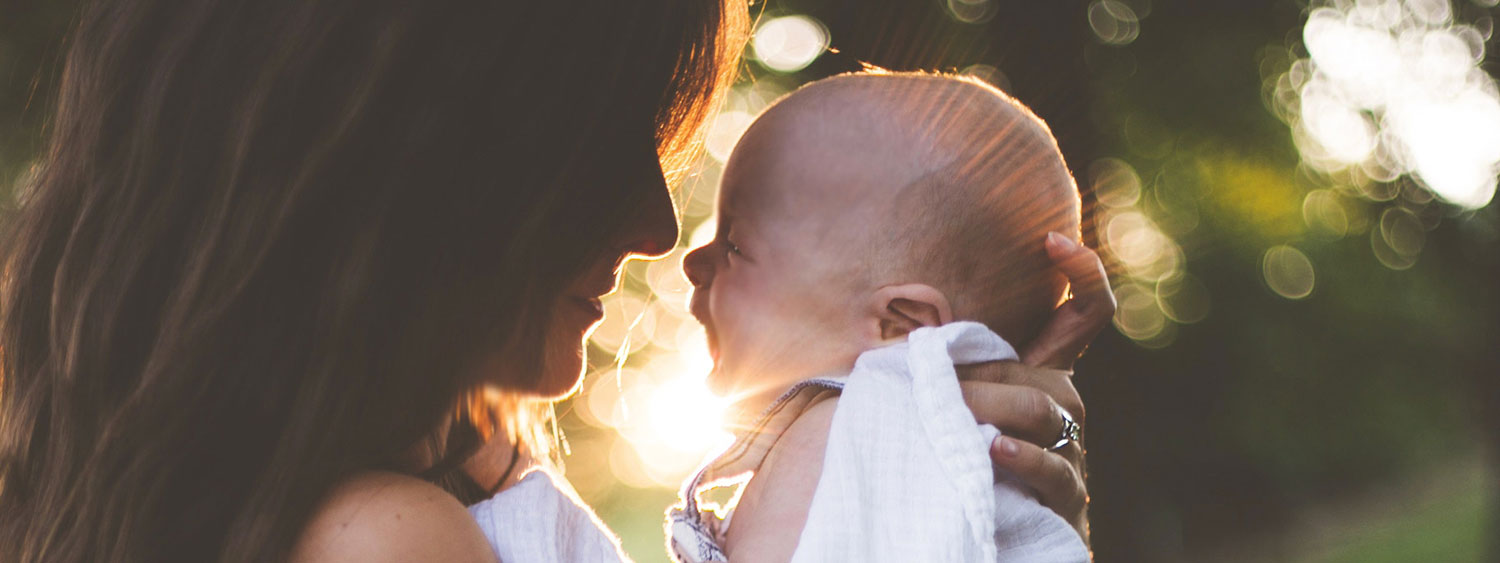
Article at a Glance
Pregnancy is an exciting time for soon-to-be parents, but preparing for the birth of your little one can be overwhelming. Retail stores and websites are full of products they claim are “must-haves,” but there are only a limited number of items that you actually need to buy before you bring your baby home from the hospital. Everything else can be postponed, borrowed, or skipped altogether.
A car seat is one of the most immediate items you’ll need to buy, as you’ll need it to transport your baby home from the hospital. Be sure to do your research about the safest models, and take advantage of a free car seat safety check to make sure you’re installing it correctly. These checks are often done at local police stations and fire departments. Car seats do expire, so check the bottom or back for its expiration date if you’re borrowing one or buying it second-hand.
Newborns typically sleep around 16 hours a day, so providing a safe and comfortable place for your baby to sleep is extremely important. The safest place for a child to sleep is in a crib, on his or her back. Having a designated place for your baby to sleep is also a great way to develop a routine, ensuring that both you and your baby receive the rest you need.
There have been a few significant safety recalls in recent years. If you’re inheriting a crib from a family member, check safety guidelines for issues like drop-sides, the width between rails, and how it was painted. If you’re unsure, skip it.
Whether you choose to breastfeed or feed with formula, you’ll need the proper supplies. Those who are breastfeeding will likely want a breast pump and bottles so that other members of the family or caregivers can help feed the baby. Those opting for formula will also need a plentiful supply of bottles, as well as several days of formula on hand.
Newborns can go through 10-12 diapers a day, so being stocked up in the diaper and wipes department is vital. Whether you choose disposable diapers or cloth diapers, you’ll need to have a generous supply on hand.
A word of caution: You’re unlikely to be able to guess your baby’s birth weight in advance or predict how quickly they’ll grow. If you want to stockpile, do so in a variety of sizes rather than buying a mountain of newborn sizes.
Rashes can happen very easily, and some babies are more prone to developing rashes than others. A simple over-the-counter rash cream is a great item to have in your house.
Babies can go through multiple outfits a day, so be sure to have spare clothes on hand – and never travel outside of the house without an extra set of clothing. Keep things simple and practical, focusing on onesies, pajamas, and socks in the early days.
Babies are messy and can spit up multiple times a day. Burp cloths, cloth diapers, and bibs are valuable tools to carry with you everywhere – both inside and outside of the house.
There will be moments when you’ll find yourself needing to catch up on work or household chores while your little one is sleeping. A baby monitor with a camera will allow you to keep tabs on your baby at all times.
Babies are slippery. Giving your baby a bath can be made a lot easier with a simple baby tub, cot, or sponge that can fit inside your bathtub or sink. Your pediatrician may recommend you avoid soap for the first few baths, so don’t worry about stocking up on soaps, shampoos and lotions until you’ve talked to your pediatrician.
A stroller is a great thing to have when you want to take your baby out for some fresh air—but it will be several months before your baby can sit up on their own and graduate to the smaller “umbrella stroller” style. Consider a car seat / stroller combo which will allow you to fasten the car seat directly into the stroller without disturbing your little one.
If you’d rather not buy a bulky stroller you may only use for six months, borrow one or consider wearing your baby until they are old enough for a smaller style stroller.
A changing table can make changing diapers easier by preventing you from having to get on the floor every time you do it, but it’s more of a luxury than a necessity. No matter what you use, you’ll always want to keep your eyes and at least one hand on your baby during a diaper change — so a dresser can work just as well.
Advanced diaper pails are touted as an innovative way to dispose of dirty diapers in one place, while also eliminating odors. Most parents find that just taking out the trash each day — or even after each diaper change — is a better way to eliminate odors.
Bouncy chairs can be a great way to soothe your little one when they’re fussy or have acid reflux. They’re convenient because you can move them from room to room. But do you really need one? Definitely not.
Soft-sided playpens can keep your baby safe from hazards when they start to crawl, but you don’t need to consider buying one right away since your baby won’t be crawling for many months to come. When your child does start to crawl, you can skip the playpen by closely supervising them and ensuring that your home is baby-proofed. If you’re considering one for travel, most hotels also offer these to guests. You can request one ahead of time if you’re traveling, or borrow one from a friend or family member.
It’s true that you’ll need some kind of bag to carry bottles, burp cloths, diapers, and a change of clothes for your little one. However, you don’t need an expensive contraption that promises to keep you organized – you just need a sizeable bag that can fit everything you need. And that bag will get smaller and smaller the older your child gets. By their first birthday, you may find yourself running errands with only a couple of diapers and a package of wipes in your everyday purse.
Many parents like to use “white noise” or a sound mimicking the mother’s heartbeat to lull their babies to sleep, but such machines aren’t necessary. In fact, they can often make babies reliant on them to fall asleep. Instead, many experienced parents recommend you simply let the home’s normal sounds carry on. This way, your baby will grow used to falling asleep in his or her typical sleep environment.
Your little one won’t start using a high chair until they can sit up on their own and eat solid foods, so you don’t need to rush into buying one. Take your time, do your research, and make the purchase when your child is actually ready. Because your child may tire of a high chair as soon as age two, this is one item it may be best to borrow.
Toys can be great at stimulating young brains during important stages of development. However, you don’t need to go overboard with toys that your baby won’t be able to play with for months or years to come. Keep it simple in the beginning, limiting your purchases to age-appropriate soft and colorful toys with fun textures and noises. Anything you buy should be safe to gnaw and chew.
It can be tempting to buy a colorful activity gym with all the bells and whistles – and yes, they do help babies develop hand-eye coordination and can encourage “tummy time.” However, a quilt on the floor and a mirror or some parental involvement can also keep your baby stimulated.
If you stroll down any baby aisle in a retail store, you’ll find numerous contraptions to let you warm a bottle. The truth? If you use formula, you can start with room temperature water. And if you’re heating breastmilk, putting the bottle in a bowl of warm water can do the job just as well.
It’s normal to become overwhelmed when having your first baby, but it’s important to remember that there are very few items which are absolute must-haves in the early days. If you’re confused about whether or not you need something, you can always ask your pediatrician or take the advice of loved ones who have already begun their parenting journeys.

Dr. Later is a father of three boys, a die-hard Utah Jazz fan, and a lover of the outdoors. He has an interest in sports medicine and autism spectrum disorder. Languages: English, Spanish